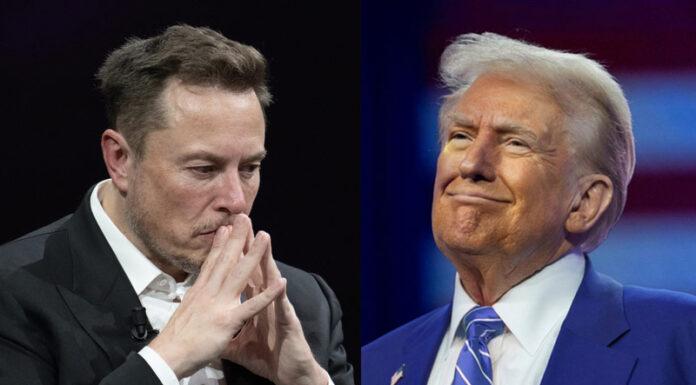President Donald Trump was reportedly surprised and disturbed upon discovering that Elon Musk was set to receive a briefing on classified military plans regarding a potential conflict with China at the Pentagon last month, as reported by the Wall Street Journal.
The Wall Street Journal indicated that Trump was “unhappy” with the situation, particularly frustrated over not being informed beforehand, given Musk’s substantial business ventures in China. The White House did not provide immediate comments on the report.
The announcement of the intended briefing came before Musk’s meeting with Defense Secretary Pete Hegseth, leading to criticism from Trump’s adversaries, who pointed out Musk’s business links in China as a significant conflict of interest. These concerns led to changes in the meeting’s agenda between Musk and Pentagon officials.
Though discussions still included China-related topics, the actual meeting did not involve any classified data, according to reports from the BBC and Musk himself. Musk’s visit to the Pentagon marked an unusual level of access for a tech billionaire whose companies have substantial federal defense contracts.
Trump publicly labeled the initial report by the New York Times as “fake news,” asserting there was no plan to brief Musk on a China war strategy. However, sources suggest that privately, Trump was displeased about being unprepared for the news. This came despite Reuters reports confirming a U.S. official had verified the briefing would cover various topics, including China.
Musk, who reportedly sought the briefing, labeled the report as “pure propaganda” while simultaneously threatening “prosecution” against those leaking information. Musk has had exceptional access within the Trump administration, raising concerns about potential conflicts between his advisory role and business interests.
Defense Secretary Pete Hegseth aimed to clarify the meeting’s purpose, emphasizing a focus on “innovation, efficiencies & smarter production” over classified war strategies. A Pentagon spokesperson later described the New York Times report as “egregious” and “fake,” according to Politico.
The intricate relationship between Trump and Musk has been increasingly scrutinized since Trump appointed Musk to lead the Department of Government Efficiency (DOGE), tasking him with reducing waste and fraud in federal spending. Musk’s aggressive tactics in this role, which included suggestions to cut numerous federal jobs, have reportedly caused friction even within the White House.
According to multiple sources, Trump has informed his Cabinet that Musk will resign from his DOGE position in the coming weeks. Musk is expected to maintain an informal advisory role while refocusing on his businesses, including Tesla, X, and SpaceX.
The controversy over Musk’s Pentagon visit coincides with his political activities adversely affecting his business interests. Tesla’s stock has dropped nearly 50% since December 2024.
Musk has acknowledged that his DOGE advisory role has been “a very expensive job” for Tesla, leading to protests from voters opposed to DOGE’s activities. The backlash has extended beyond stock prices, with Tesla’s European sales declining by 45% in January 2025.
The company faces further pressure as former owners sell their vehicles due to Musk’s political engagements. Tesla’s first-quarter 2025 deliveries are projected to be 7% lower than the previous year, with analysts citing “anti-Musk and brand issues” as a significant factor in this decline.
This situation highlights the complex challenges business leaders face when they assume public political roles. As Musk juggles his position as a presidential adviser with his responsibilities as CEO of major corporations, the potential for conflicts of interest and business repercussions continues to grow.











